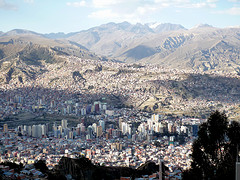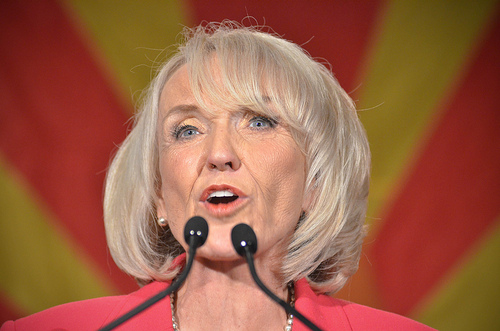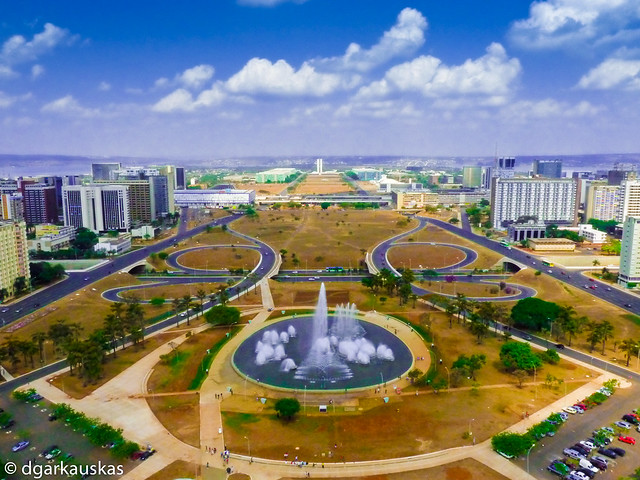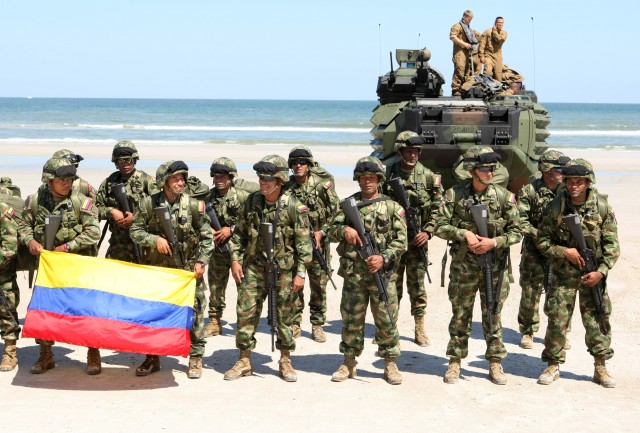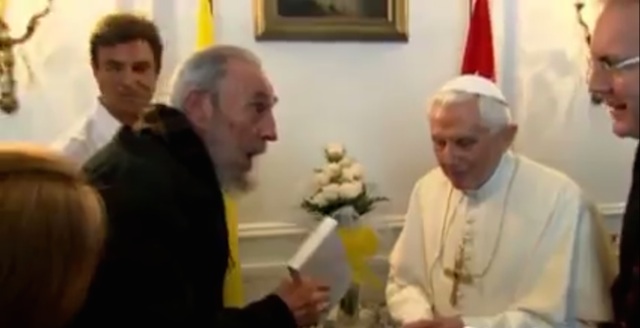
Caribbean, Cuba, Latin America: Week in Review
Cuba to Allow Construction of First New Catholic Church in 55 Years
October 28, 2014 By Staff
Top Story — Cuba’s government has sanctioned the construction of the first Catholic church to be built in the country in 55 years, the latest development in a continued trend of growing acceptance of religion on the island.
The church, to be funded by members of the U.S.-based exile community in Tampa, Florida, will be constructed in Sandino, a town located in the province of Piñar del Rio on the island’s western coast.
The church’s construction indicates a growing connection between the Cuban diaspora and their homeland — a connection that could shift long-deadlocked U.S. policy. The government’s agreement to the project fits a broader trend of a slow softening toward religion, which was relegated to the background of Cuban society by the 1959 revolution.
Since the fall of the Soviet Union in 1991, Cuba’s policies toward religion have evolved. Pope John Paul II’s 1998 visit to the island was the first papal visit since the revolution. In anticipation of that visit, leader Fidel Castro declared Christmas a national holiday for the first time since 1959.
Following the 1998 papal visit, though, change has been gradual. Cubans remain far less Catholic than other Latin Americans. A 2011 study by the Pew Center found that only 51.7 percent of Cubans identify as Catholic in comparison to 84.9 percent in Mexico.
Cuba received its second post-revolution papal visit in March 2012, when Pope Benedict XVI took a three day tour of the island. Benedict acknowledged the church’s limited capacity to promote change in Cuba, but still expressed optimism due largely to expanded engagement with Raúl Castro, who succeeded his older brother as president in 2008.
The younger Castro has made it a point to demonstrate a newfound acceptance of religious practice on the island, and symbolically observed Hannukah with Cuba’s small Jewish population in 2010. Castro wore a yarmulke for the occasion.
Beyond religious policy, the construction of the church in Sandolino comes as the government pursues a series of political and economic reforms. Changes since Fidel Castro stepped down in 2006 for health reasons have included the privatization of state businesses and a loosening of foreign travel restrictions. “We reform, or we sink,” Raúl Castro famously declared in a 2010 address.
The funding of the church’s construction by Cubans in Tampa, Florida also points to a new trend in relations between Cubans still on the island and those in the diaspora, which for decades had been marked by extreme tension. Exiles were known as gusanos within Cuba — a derogatory term translating as worms — and extreme opposition to the Cuban government pervaded the Miami-centered exile community. As younger generations have left Cuba, however, in record numbers, this polarization has diminished.
Many new members of the diaspora, increasingly settling outside of the hardline anti-Castro bastion of Miami, say they want closer U.S. ties with the island, which is still home to many of their family and friends.
Highlighting the changing attitudes of Cubans both on and off the island, The New York Times recently called for an end to the U.S. embargo on Cuba in an editorial, which Fidel Castro then reprinted in state media nearly verbatim. The embargo is now 54 years old, just a year shy of the construction of Cuba’s last Catholic church.
Headlines from the Western Hemisphere
North America
- Mexico’s attorney general on Monday announced the arrest of four alleged members of the Guerreros Unidos gang, adding that on Tuesday reporters would be taken to a crime scene pointed out by the suspects, who are accused of colluding with corrupt local authorities in killing six people and forcing the disappearance of 43 student activists.
- While the attorney general, Jesús Murillo Karam, did not mention a possible connection, another (unnamed) official said the arrested suspects pointed authorities to a new mass grave in southern Guerrero state, where testing is ongoing to confirm the victims’ identities.
- UNESCO called on Monday for a full investigation into the Oct. 15 murder of Mexican physician and blogger Maria del Rosario Fuentes, who was allegedly targeted for her contributions to the anti-crime Valor por Tamualipas (Courage for Tamualipas) Facebook page
Caribbean
- Police in Haiti have not carried out an order to transfer former dictator Jean-Bertrand Aristide to court from the house where he is essentially confined and where some of his supporters remain in a constant vigil, a reminder that violent protests may break out if he should be brought in front of an judge.
- A member of Cuba’s anti-Ebola medical team in West Africa, the largest committed by any country, has died of complications from malaria.
Central America
- Legislators in Honduras have passed a measure that approves life sentences for the murder of certain officials, including police officers and judges.
- The Google-owned and Israeli-developed Waze app, a crowd-sourced navigation service, has become a phenomenon in Costa Rica among volunteers and government officials alike as a way of mitigating the impact of its infamous traffic jams and befuddling addresses.
Andes
- Peruvian authorities returned scores of exhumed remains of victims in the country’s “dirty war” to their families on Monday.
- The latest Peruvian official arrested for alleged involvement in the drug trade is Benedicto Jimenez, a former police colonel and hero during the country’s dirty war, as well as a suspected lieutenant of the “Pablo Escobar of Peru,” kingpin Rodolfo Orellana.
- In an effort to curb illegal gold mining, a top revenue source for armed groups, Colombia’s government has proposed reforms that would require all gold to be sold to the country’s central bank.
Southern Cone
- A Brazilian bank and juice company on Monday finalized a $680 million deal making them the latest firms from that country to acquire a major U.S. food company: the iconic Chiquita banana company.
- Brazil’s re-election of President Dilma Rousseff has reportedly highlighted class tensions, evidenced by drops in the stock market and the currency as business interests signal their discontent with the prospect of another term of Rousseff’s center-left economic policy.
- Criminals in Santiago, Chile stole two armored cars containing a total of $5 million in separate robberies, one of them just blocks away from La Moneda presidential palace.
- Argentina’s top official for the Falkland Islands has warned it will sue a group of British firms conducting offshore oil and gas exploration around the islands, due to what he said was the potential for drilling to cause a major ecological disaster without cooperation from South American countries.
Image: Youtube
Subscribe to Today in Latin America by Email
